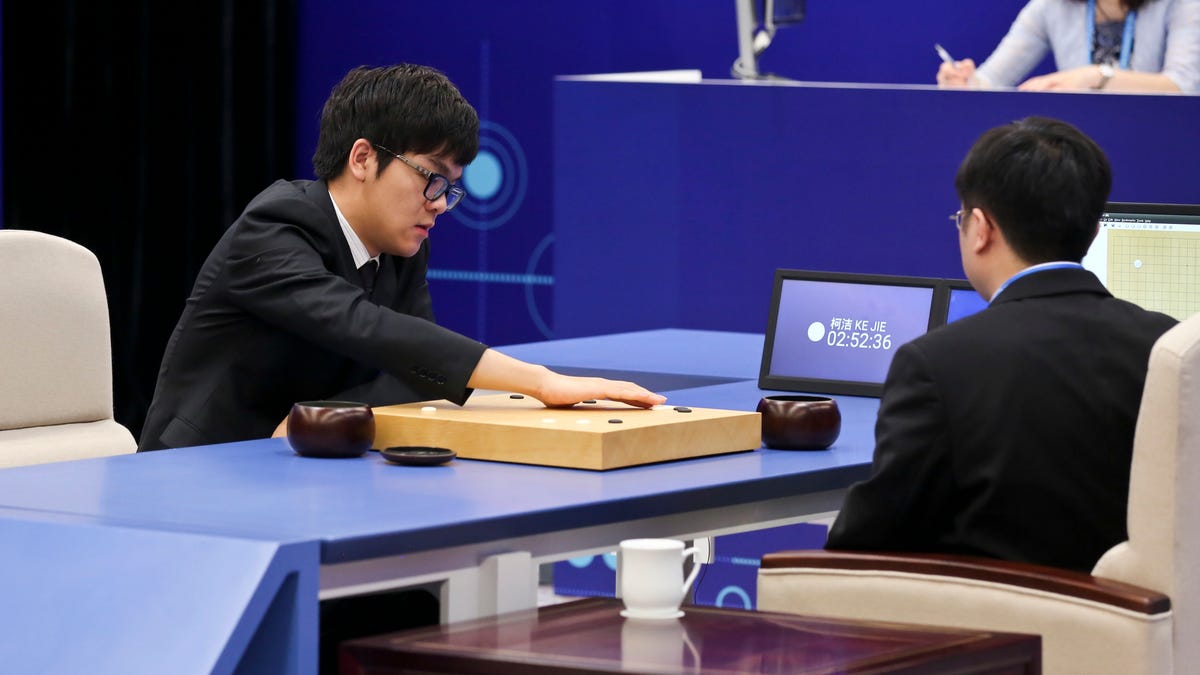Google's gaming AI is retiring from beating human players
After taking down human Go champion Ke Jie, the AlphaGo program will use its brains to help scientists tackle society's most complex problems.

Chinese Go player Ke Jie (left) competes against Google's artificial intelligence program AlphaGo in their third match.
AlphaGo is saying goodbye to game boards.
The artificial intelligence program, developed by Google-owned DeepMind, is retiring from competitive Go play after sweeping a three-match series against Chinese Go master Ke Jie at the The Future of Go Summit in Wuzhen, China.
Next, AlphaGo will try to tackle some of society's most complex problems, said DeepMind in a blog post Saturday. The team behind AlphaGo plans to use to the AI program to develop "advanced general algorithms" that can help scientists with issues like "finding new cures for diseases, dramatically reducing energy consumption, or inventing revolutionary new materials."
AlphaGo's prowess at beating human Go masters has been held up as an example of how AI can, in some applications, surpass the smarts of mere mortals. Artificial intelligence -- the ability of computers to learn and think more like humans -- has been inserting itself more and more into our daily lives. It's at work behind the scenes at Google , Facebook and increasingly even at places like your doctor's office. At the same time, it may soon bump many people out of their jobs.
AlphaGo made headlines last year when it defeated Lee Se-dol, one of the top Go masters. It has also been secretly playing and beating some of the world's best Go players online earlier this year, entering contests under a pseudonym. While incognito, AlphaGo reportedly beat Ke -- a 19-year-old prodigy -- twice.
While AlphaGo is done with competitive play, it's not leaving the Go community empty handed. DeepMind said it will publish a final academic paper on the program later this year, and it's working on a teaching tool that will show AlphaGo's analysis of Go positions. The company also released a special set of AlphaGo vs. AlphaGo games -- the AI learned by playing millions of games against itself -- that contain "many new and interesting ideas and strategies" for Go players.
CNET Magazine: Check out a sample of the stories in CNET's newsstand edition.
Logging Out: Welcome to the crossroads of online life and the afterlife.

